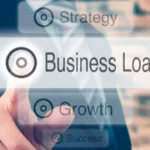The idea of trading for a living – or having your own trading business – is appealing to many people: You get to be your own boss, set your own schedule and work from home while enjoying virtually unlimited income potential. In addition to these factors, anyone with a computer, Internet connection and a small trading account can give it a try. Unlike many other jobs, no degrees, special training or experience is required.
The ease with which you can start trading (just open a trading account and hit the “buy” button) in no way implies that becoming a successful and profitable trader is easy. Many of the 90% of traders who fail within the first year do so because they start trading without having developed any type of logical business or trading plan. Any business entered into with such a lack of planning is likely to fail. Another common reason for failure is that the trader is undercapitalized; meaning, he or she doesn’t have enough money to take on the risk and absorb the inevitable losses.
UNDERSTAND THAT IT’S NOT A ONE RIDE THING
There is also a lot of deception associated with learning the business of trading. Late-night infomercials and hundreds of websites would have you believe that trading is easy and that anyone can generate a huge and consistent income from the financial markets, with little or no effort. While there may be the rare case where a trader manages to make a huge amount of money in a short time, that’s not the norm. For most people, trading involves a lot of hard work before becoming successful.
As a business, trading requires constant research, evaluation and discipline. There are no guarantees in the trading business, and you could work a 40-hour week and end up losing money. Anyone considering trading should make sure they have both the personality and financial means to take on this type of business activity.
If you want to become a part-time or full-time trader, it’s important that you take the time to research and plan your trading business; these are essential steps in your overall success as a trader. This is not a profession at which you will become skilled overnight. Traders who start putting their money in the market too soon or without a well-researched trading plan often find themselves back at the beginning, but with a lot less trading capital. Traders who have realistic expectations and who treat trading as a business – not as a hobby or a get-rich-quick scheme – are more likely to beat the odds and become part of the group of traders who succeed.
Trade Independently
The first option – and likely the easiest because it is so flexible and can be molded around daily life – is trading from home. However, day trading stocks from home is also one of the most capital-intensive arenas. This is because the minimum equity requirement for a trader who is designated as a pattern day trader is $25,000, and this amount must be maintained at all times. If the trader’s account falls below this minimum, he or she will not be permitted to day trade until minimum equity level is restored either by depositing cash or securities.
Therefore, potential traders need to be aware of the other markets that require less capital and have lower barriers-to-entry. The foreign exchange (forex) or currency markets offer such an alternative. Accounts can be opened for as little as $100 and, with leverage, a large amount of capital can be controlled with this small amount of money. This market is open 24 hours a day during the week, and thus provides an alternative to those who cannot trade during regular market hours.
The contract for difference (CFD) market has also expanded. A CFD is an electronic agreement between two parties that doesn’t involve ownership of the underlying asset. This allows gains to be captured for a fraction of the cost of owning the asset. As with the forex market, the CFD market provides high leverage, meaning smaller amounts of capital are needed to enter the market. The stock market can also be traded using a CFD. While the stock is never owned, the contract allows profits/losses to be reaped from speculating on the underlying stocks or indexes by mirroring its movement.
High leverage does mean higher risk, but if a trader does not have a large amount of capital, this market can still be entered with very low barriers. Educating yourself on the risks involved and building a strong trading plan are absolute musts before partaking in any trading activity, but when you’re highly leveraged, it becomes even more paramount.








